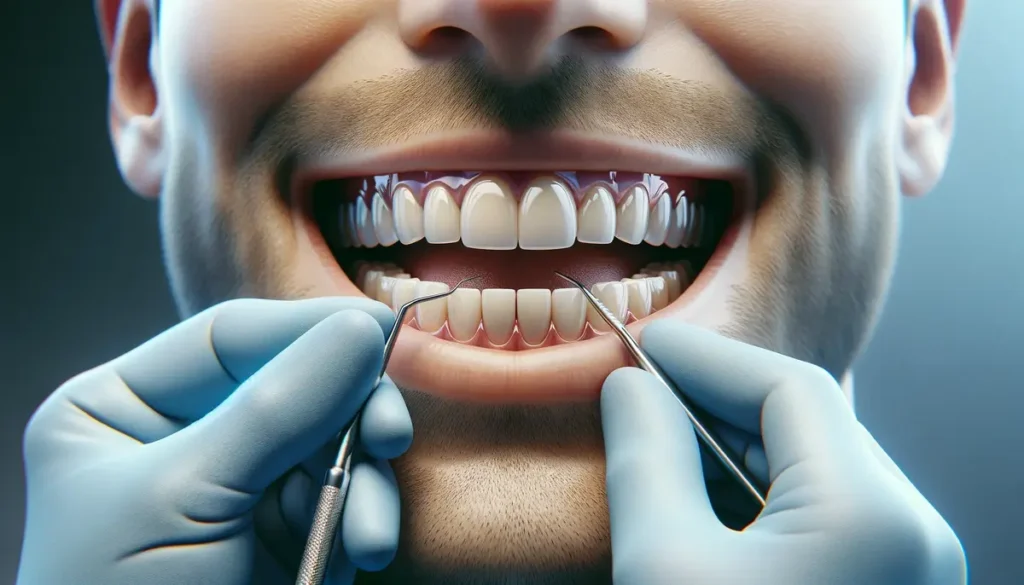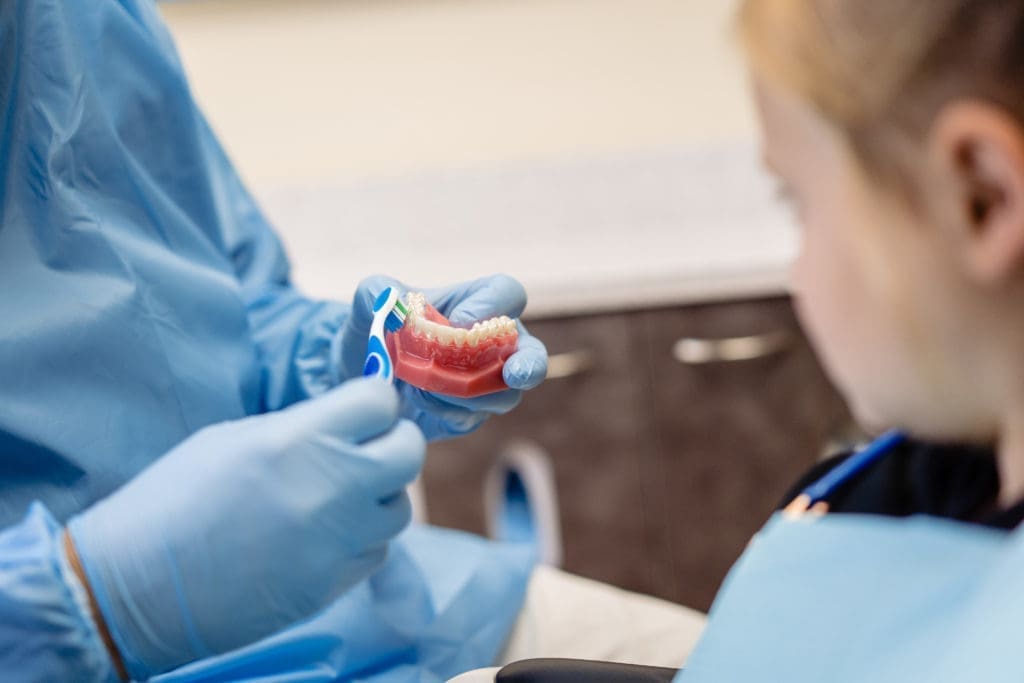
Teeth whitening is a popular cosmetic dental procedure designed to lighten the color of your teeth and remove stains and discoloration. It works by using bleaching agents, typically hydrogen peroxide or carbamide peroxide, to break down stains on the tooth’s surface. This process can significantly improve the brightness of your smile and boost your confidence.
There are various methods available for teeth whitening, ranging from professional in-office treatments to at-home kits and natural remedies. Each method has its benefits and suitability depending on the individual’s needs and preferences. Professional treatments usually offer faster and more noticeable results, while at-home options provide convenience and affordability.
Maintaining the results of teeth whitening involves good oral hygiene practices, such as regular brushing and flossing, and avoiding foods and drinks that can cause staining. With proper care, the effects of teeth whitening can last for several months to a few years, making it a worthwhile investment for many people seeking a brighter smile.
Table of Contents
What is Teeth Whitening?
Teeth whitening is a cosmetic dental procedure aimed at lightening the natural color of your teeth without removing any of the tooth surfaces. It helps to remove stains and discoloration caused by various factors such as aging, consumption of staining substances like coffee, tea, wine, and smoking. The process involves the use of bleaching agents, primarily hydrogen peroxide or carbamide peroxide, which break down the stains into smaller pieces, making the color less concentrated and your teeth brighter.
This procedure can be done professionally in a dental office or at home using over-the-counter products. Professional in-office treatments often yield faster and more significant results because they use higher concentrations of bleaching agents and may involve the use of special lights or lasers to enhance the effectiveness of the whitening process. On the other hand, at-home kits include whitening strips, gels, or custom-fitted trays that offer convenience and cost savings, though they typically take longer to achieve desired results.
Teeth whitening is not a permanent solution and needs to be maintained with good oral hygiene and regular touch-ups. The longevity of the results can vary depending on individual habits and oral care routines. Overall, teeth whitening is a popular and accessible way to enhance the appearance of your smile, boosting your confidence and aesthetic appeal.
Types of Teeth Whitening Procedures
Each method offers its own set of benefits and drawbacks, allowing individuals to choose the best option based on their needs, budget, and desired results. Professional treatments offer the quickest and most noticeable improvements, while at-home methods provide convenience and cost savings.
Professional Teeth Whitening
- In-Office Treatments: Performed by a dentist, these treatments use high-concentration bleaching agents and sometimes special lights or lasers to accelerate the whitening process. This method can lighten teeth several shades in just one visit, providing immediate and dramatic results.
- Laser Teeth Whitening: A specific type of in-office treatment where a laser activates the whitening agent, offering quick and enhanced results.
At-Home Teeth Whitening
- Whitening Kits: These kits typically include custom-fitted trays and a whitening gel. The trays are worn for a specified time each day, gradually whitening the teeth over a few weeks.
- Whitening Strips and Gels: Over-the-counter options that are applied directly to the teeth. They are easy to use and more affordable, though they may take longer to achieve noticeable results.
- Natural Teeth Whitening Methods: Techniques like brushing with baking soda or using hydrogen peroxide. These methods are generally less expensive but may not provide significant whitening and could pose risks if not used properly.

Cost of Teeth Whitening
Professional teeth whitening performed in a dental office typically ranges from $300 to $1,000 per session. This cost can vary based on the dentist’s expertise, the specific procedure used, and the location of the dental practice.
Cost Comparison of At-Home Teeth Whitening Options
- Whitening Kits: These can range from $100 to $400. Custom-fitted trays are usually more expensive than standard ones.
- Whitening Strips and Gels: Over-the-counter products typically cost between $20 and $100, depending on the brand and strength of the whitening agent.
- Natural Methods: Baking soda and hydrogen peroxide are very affordable, usually costing less than $10, but they may not be as effective.
Factors Affecting the Cost of Teeth Whitening
Several factors can influence the cost of teeth whitening:
- Type of Treatment: Professional in-office treatments are generally more expensive than at-home options.
- Severity of Discoloration: More severe staining may require more intensive treatments, increasing the cost.
- Geographic Location: Prices can vary significantly based on the region and the cost of living in that area.
- Dentist’s Expertise: Highly experienced cosmetic dentists may charge more for their services.
Understanding these costs and factors can help you make an informed decision about the best teeth whitening option for your needs and budget.
How Long Do the Results of Teeth Whitening Last?
The longevity of teeth whitening results can vary widely depending on several factors. Professional teeth whitening treatments can last anywhere from six months to three years, with the average being around one to two years. This duration is influenced by your oral hygiene habits and lifestyle choices.
Maintaining good oral hygiene is crucial for preserving the results. Regular brushing and flossing, along with routine dental check-ups, help keep your teeth looking their best. Additionally, using a whitening toothpaste can help prolong the effects of your whitening treatment.
Lifestyle factors such as diet and habits also play a significant role. Consuming staining substances like coffee, tea, red wine, and tobacco can shorten the lifespan of your whitening results. To maximize the longevity, it’s advisable to limit these substances and opt for a balanced diet rich in fruits and vegetables.
The longevity of teeth whitening results depends on how well you care for your teeth post-treatment. With proper maintenance and mindful habits, you can enjoy a brighter smile for an extended period.
What Are the Side Effects of Teeth Whitening?
Being aware of these potential side effects and taking steps to mitigate them can help you achieve a brighter smile safely. Always consult with your dentist before starting any whitening treatment to ensure it’s appropriate for your dental health.
Tooth Sensitivity
One of the most common side effects of teeth whitening is increased tooth sensitivity. This occurs because the bleaching agents can temporarily expose the dentin layer of the teeth, making them more sensitive to hot and cold temperatures. The sensitivity usually subsides within a few days after the treatment.
Gum Irritation
Teeth whitening can sometimes cause irritation to the gums, especially if the bleaching agent comes into contact with the gum tissue. This can result in mild discomfort and redness, which typically resolves within a few days. Ensuring proper application and using products specifically designed to minimize gum contact can help reduce this risk.
Enamel Damage
Although rare, excessive or improper use of whitening products can lead to enamel damage. This can make the teeth more susceptible to decay and other dental issues. It’s important to follow the instructions provided by your dentist or the product manufacturer to avoid overuse and potential harm.
Temporary Discoloration
In some cases, teeth may develop uneven or temporary discoloration after whitening. This usually happens if the teeth have varying levels of staining or if the bleaching agent is not applied evenly. Over time, this should balance out, but it’s essential to ensure the product is applied correctly to minimize this risk.
Tips for Maintaining White Teeth After Treatment
By following these tips, you can extend the longevity of your teeth whitening results and enjoy a bright, healthy smile for years to come.
Practice Good Oral Hygiene
Maintaining white teeth starts with a solid oral hygiene routine. Brush your teeth at least twice a day with a fluoride toothpaste and floss daily to remove plaque and prevent staining. Using an electric toothbrush can enhance cleaning efficiency and help keep your teeth brighter.
Watch Your Diet
Be mindful of foods and beverages that can stain your teeth, such as coffee, tea, red wine, and berries. If you consume these items, try to rinse your mouth with water afterward or use a straw to minimize contact with your teeth. Incorporating crunchy fruits and vegetables like apples and carrots can help scrub your teeth and reduce stains.
Regular Dental Check-Ups
Schedule regular dental check-ups and cleanings to maintain your oral health and keep your teeth looking their best. Professional cleanings remove plaque and tartar buildup that can contribute to staining. Your dentist can also provide touch-up whitening treatments if necessary.
Use Whitening Products
Consider using whitening toothpaste or mouthwash to help maintain the results of your whitening treatment. These products contain mild abrasives and whitening agents that can help prevent new stains from forming. However, be cautious not to overuse them, as excessive use can lead to increased sensitivity.
